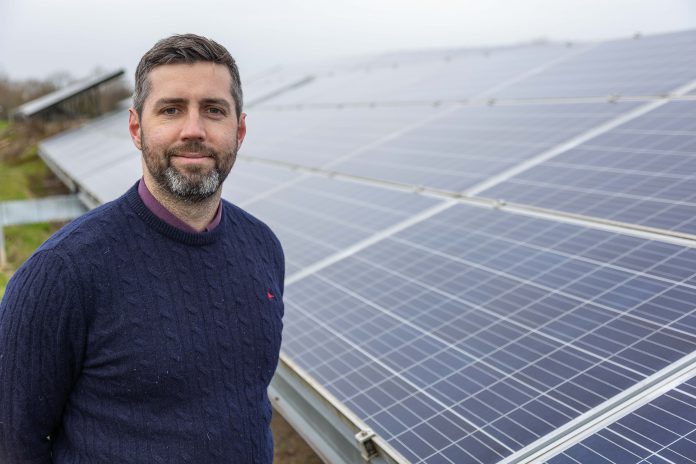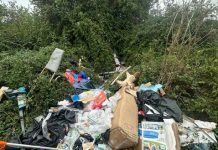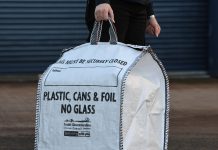South Gloucestershire Council is making strong progress with tackling climate change by reducing carbon emissions, promoting active travel and harnessing renewable energy, a new report has shown.
The council aims to make South Gloucestershire carbon neutral by 2030 and has this year been busy planting trees and working with the community in numerous ways to increase biodiversity.
The council is a national leader on climate change, having been independently assessed to be in the top 10 councils across the UK delivering work on the climate and nature emergency. The council impressively ranked in the top ten overall, out of out of 324 plans assessed. https://councilclimatescorecards.uk/
The Climate and Nature Emergency Annual Progress Report was approved by Cabinet on Monday (5 December). The report highlights the considerable progress made in tackling the climate emergency declared by the council in 2019. Bringing together climate and nature work together for the first time into one report, it underlines the significant steps that have been taken in this third year of work and includes an action plan for the upcoming fourth year.
Notable projects delivered by the council during year three include:
Reducing carbon emissions
- Development of home energy retrofit schemes including Innovate to Renovate and the Retrofit Accelerator – area wide projects that will increase and speed up domestic retrofit capacity.
- Thermal imaging cameras provided through South Gloucestershire libraries – helping residents find out about heat loss at home and advice offered to help retrofit their homes.
- Upgrading school heating systems to replace existing fossil fuel boilers with new heat pumps – completed at six primary schools.
- New public electric vehicle charging sites delivered around the district with bids submitted for further locations.
- Targets exceeded on the use of lower emission materials for highways maintenance.
- Schools active travel programme (Modeshift Stars) brought in five new schools to bronze level accreditation, two moved to silver and one moved to the gold standard.
- First phase study into the use of mine water for decarbonisation of homes across the district has indicated significant potential to provide low-cost renewable heat.
Increasing renewable energy generation
- 252 homes in South Gloucestershire have installed solar PV this year through the West of England Solar Together scheme.
- Work on adding renewable energy generation to council owned Sort It recycling centres has progressed.
- Loan finance provided for renewable energy installation at The Wave inland surfing destination.
Delivering for Nature
- Significant external funding has been secured to deliver planting including Trees for Climate funding through the Forest of Avon Trust, Green Recovery Funding from the West of England Combined Authority (WECA) and Hedgerow Heroes funding from The Countryside Charity (CPRE).
- Funding has also been secured this year including for the Jubilee Park, Frome Valley River Reserve, Tree Canopy Project, Common Connections projects and the Wild Belt Small Sites Aggregation Project.
- 17 Town and Parish Councils are preparing Local Nature Action Plans.
- Extra planning protections for biodiversity.
Councillor Toby Savage, Leader of South Gloucestershire Council with cabinet responsibility for climate change, said: “I’m delighted to see positive progress being made across South Gloucestershire as we work towards becoming carbon neutral by 2030. Our work, together with residents, businesses and other organisations, is a commitment to our communities both now and in the future.
“The climate and nature emergency reaches into all areas of our economy and society and will have increasing impacts. It’s our duty to help mobilise a collective response to this challenge, and it will involve careful management of council budgets and services. I am proud that this year we have brought in substantial external funding of over £8 million to enable us to increase our effort to scale up delivery of this work in the face of squeezed council finances.”
This year the council commissioned a report by the University of the West of England called the ‘Plan to 2030’, which looked at what emissions reductions can be delivered locally through national policies and programmes and local initiatives, and where the council should focus its efforts going forward.
Through this report the council has developed a greater understanding of the scale of the remaining challenge. The report sets out the likely remaining emissions in 2030 and makes a series of recommendations about where the council should focus efforts between now and 2030, which have been used by the council to form the basis of the Year 4 Climate and Nature Emergency Action Plan.
Councillor Savage added: “Without our declaration of area wide carbon neutrality by 2030, we would not have come this far in our delivery. We know that every degree of warming matters and that the time for reducing emissions is now, so our focus on 2030 remains the right one.”
The council has continued to work with the West of England Combined Authority as they have delivered their Climate and Ecological Emergency Action Plan demonstrating the regional strength in joint working to deliver real change, and recognising how regional investment and delivery shapes climate and nature emergency outcomes.
Looking ahead to next year and beyond, the council’s work to respond to the climate and nature emergency will scale up, including delivery of several significant nature-recovery and decarbonisation projects that the council has secured funding for.
Find out more by visiting www.southglos.gov.uk/thebigswitch









